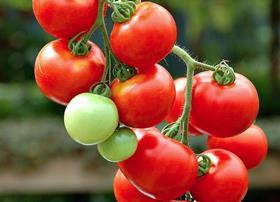
The Cornerways tomato glasshouse is to be converted into production of strain of cannabis for the pharmaceutical sector.
The deal, announced today (25 October) by Cornerways owner British Sugar, will see the crop used as an ingredient in a new prescription medicine being developed to treat rare forms of epilepsy in children.
It will be grown under contract for British drugs company GW Phamaceuticals, with production set to begin in 2017. Tomato production at Cornerways’ Wissington nursery will be phased out from November of this year, after all existing supply commitments for tomatoes are fulfilled.
Thanet Earth, which previously marketed Cornerways tomatoes, confirmed the contract between the two companies has ended. Thanet Earth said it is in the final stages of construction fir its fifth glasshouse, which will create a further 6.35 hectares of tomato production and partially replace the Cornerways supply.
“It has been a pleasure to work with the team at Cornerways this year, and we have enjoyed a very successful season of tomato production from their facility,” a Thanet Earth statement said.
“Should British Sugar revert to tomato production in the future, Thanet Earth remains the marketing partner and would resume the responsibility for crop planning and marketing once more.”
The medicine, known as Epidiolex, has recently completed trials at the Great Ormond Street Hospital for Children in London, as well as other hospitals in the UK, Europe and the US. The contract with GW Pharmaceuticals is a step in making this medicine more widely available, British Sugar said.
The active ingredient is known as Cannabidiol (CBD), sourced from a non‐psychoactive variety of the cannabis plant family, which is specifically bred for medical purposes.
British Sugar managing director Paul Kenward said: “Sixteen years ago we realised we could use some of the heat and waste carbon dioxide generated in our Wissington sugar factory to develop a horticultural business.
“This new era for our horticultural business uses all we have learned to date to further build this value stream for British Sugar and to benefit the pharmaceutical industry. Furthermore, we are extremely proud that our new crop will make a worthwhile contribution to the control of such a debilitating childhood disease. Annually, we will produce enough of this ingredient to treat the equivalent of up to 40,000 children globally.'
Chair of Dravet Syndrome UK Galia Wilson said: ‘’Dravet syndrome is one of several rare but serious forms of epilepsy in children and adults for which there are limited treatment options. We welcome the development of any medicine that may help this complex patient group with high levels of unmet need.’’



